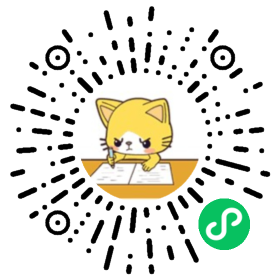相关试题
【单选题】
剩余价值和利润在量上的关系是___
A. 剩余价值>利润
B. 剩余价值<利润
C. 剩余价值≠利润
D. 剩余价值=利润
【单选题】
剩余价值率和利润率之间的数量关系是___
A. 剩余价值率=利润率
B. 剩余价值率≤利润率
C. 剩余价值率>利润率
D. 剩余价值率<利润
【单选题】
资本主义的基本经济规律是___
A. 价值规律
B. 剩余价值规律
C. 社会化大生产规律
D. 竞争规律
【单选题】
资本主义经济危机的实质是___
A. 生产绝对过剩
B. 生产相对不足
C. 生产的产品相对于资本增殖的需要的过剩
D. 社会生产混乱
【单选题】
资本主义经济危机集中暴露了___
A. 资本家对工人剥削程度加重
B. 资本主义无法解决人民的就业问题
C. 使用价值与价值的矛盾
D. 资本主义制度的历史局限性和历史过渡性
【单选题】
垄断资本主义的根本特征和经济实质是___
A. 资本主义基本矛盾加剧
B. 垄断消灭了自由竞争
C. 国家干预经济
D. 垄断代替自由竞争
【单选题】
商品诸因素中反映人与自然关系的是 ___
A. 使用价值
B. 交换价值
C. 价值
D. 价格
【单选题】
商品的社会必要劳动时间与单位商品的价值量 ___
A. 前者变化而后者不变
B. 后者变化而前者不变
C. 两者都不变
D. 两者都变化
【单选题】
美国采取权力制衡的组织形式,其中立法权属于___
A. 国会
B. 总统
C. 最高法院
D. 最高检察院
【单选题】
资本主义选举的实质是___
A. 资产阶级和无产阶级分权
B. 协调统治阶级内部利益关系和矛盾的重要措施
C. 人民大家作主
D. 每个公民都通过竞选参与政治活动,表达自己的愿望和要求
【单选题】
资本主义政党制度的实质是___
A. 允许工人阶级及其政党参与国家政治生活
B. 允许马克思主义政党独立执政
C. 不受资本主义国家政权的资本主义性质制约
D. 资产阶级选择自己的国家管理者,实现其内部利益平衡的政治机制
【单选题】
自由竞争资本主义向垄断资本主义过渡的根源在于___
A. 资本积累的一般规律;
B. 资本有机构成不断提高;
C. 资本主义的基本矛盾;
D. 竞争的结果
【单选题】
资本主义经济发展中,资本集中的直接后果是___
A. 社会总资本急剧增加;
B. 社会就业率明显提高;
C. 个别资本规模迅速扩大;
D. 绝对剩余价值总量快速增长
【单选题】
垄断的形成是___
A. 生产集中发展到一定阶段的结果;
B. 生产输出的结果;
C. 金融资本统治的结果;
D. 国家干预经济生活的结果
【单选题】
主要资本主义国家相继由自由竞争阶段发展到垄断阶段的时期是___
A. 18世纪末期;
B. 19世纪中期;
C. 19世纪末20世纪初;
D. 第二次世界大战后
【单选题】
垄断利润是___
A. 资本家获得的超额利润;
B. 垄断组织获得的平均利润;
C. 垄断组织获得的一般利润;
D. 垄断组织获得的超过平均利润的高额利润
【单选题】
垄断价格形成的基础是___
A. 垄断统治;
B. 垄断利润;
C. 自由竞争;
D. 资本主义私有制
【单选题】
垄断价格的形成和垄断利润的产生表明___
A. 价值规律不再起作用了;
B. 价值规律的作用受到了限制;
C. 价值规律的作用形式发生了变化;
D. 价值规律的内容发生了变化
【单选题】
垄断资本主义国家全部经济生活的基础是___
A. 垄断统治;
B. 资本输出;
C. 国际垄断同盟;
D. 占领殖民地
【单选题】
各种垄断组织虽然形式不同,但本质都是为了___
A. 避免两败俱伤;
B. 联合起来共同发展;
C. 相互之间竞争;
D. 获取高额垄断利润
【单选题】
把一些法律上和生产上还是独立的大垄断企业在流通环节上统一起来进行垄断经营的垄断组织形式是___
A. 卡特尔;
B. 辛迪加;
C. 托拉斯;
D. 康采恩
【单选题】
垄断资本主义国家事实上的主宰者是___
A. 银行资本家;
B. 工业资本家;
C. 金融寡头;
D. 商业资本家
【单选题】
垄断资本主义时期占垄断地位的资本是___
A. 产业资本;
B. 金融资本;
C. 银行资本;
D. 商业资本
【单选题】
垄断资本在经济政治上统治的目的归根到底是为了___
A. 规定垄断价格;
B. 获取高额垄断利润;
C. 掌握国家政权;
D. 避免两败俱伤
【单选题】
垄断价格形成后,价值规律改变了___
A. 内容变化;
B. 作用性质;
C. 作用形式;
D. 作用力度
【单选题】
金融寡头在经济上的统治主要是通过___实现的
A. 参与制;
B. 个人联合;
C. 建立政策研究咨询机构对政府施加影响;
D. 掌握舆论工具控制新闻媒介
【单选题】
金融寡头政治上的统治主要是通过___实现的
A. 合作参与制;
B. 个人联合;
C. 建立政策研究咨询机构对政府施加影响;
D. 掌握舆论工具控制新闻媒介
【单选题】
为了获得高额垄断利润,垄断组织在采购原材料时多采取___
A. 垄断高价;
B. 垄断低价;
C. 自由价格;
D. 市场价格
【单选题】
垄断资本条件下垄断企业竞争的目的是为了___
A. 获得平均利润;
B. 获得超额利润;
C. 获得高额垄断利润;
D. 消灭中小企业
【单选题】
国家垄断资本主义是___
A. 国家政权与垄断资本相结合的垄断资本主义;
B. 国家政权与垄断资本相分离的垄断资本主义;
C. 消除了生产无政府状态的垄断资本主义;
D. 解决了资本主义基本矛盾的垄断资本主义
【单选题】
国家垄断资本主义的根本特征是___
A. 国有企业的存在;
B. 国私共有的垄断资本;
C. 私人垄断资本的主导地位;
D. 国家对经济的干预和调节
【单选题】
国家垄断资本主义的产生和发展表明___
A. 资本主义仍然具有强大的生产力;
B. 社会主义制度很快就要建立;
C. 私有制已经被公有制所代替;
D. 为向社会主义过渡提供了最完备的物质准备
【单选题】
国家垄断资本主义对资本主义基本矛盾___
A. 可以完全克服;
B. 不可能克服;
C. 有可能克服;
D. 可以克服其大部分
【单选题】
垄断资本主义国家对经济的宏观管理与调节是代表着___
A. 大垄断资本家的经济利益;
B. 中小资本家的经济利益;
C. 垄断资产阶级的整体利益;
D. 全体劳动人民的共同利益
【单选题】
国家垄断资本主义对经济的宏观调节,代表着___
A. 极少数金融寡头的经济利益;
B. 国有企业的经济利益
C. 中小资本家的利益;
D. 垄断资产阶级的整体利益
【单选题】
垄断资本主义国家的计划管理是___
A. 从根本上解决了资本主义的基本矛盾;
B. 消除了资本主义经济危机;
C. 导致资本主义向社会主义和平过渡;
D. 使生产无政府状态得到一定的缓解
【单选题】
资产阶级国家参与社会再生产的目的是___
A. 实现供求总量平衡,调整优化经济结构;
B. 合理配置资源,提高社会生产力;
C. 实现充分就业;
D. 保证垄断资产阶级获得高额垄断利润
【单选题】
当代西方发达国家经济社会制度的性质是___
A. 私人垄断资本主义;
B. 自由竞争资本主义;
C. 国家垄断资本主义;
D. 后资本主义
【单选题】
资本输出的实质是___
A. 发达国家帮助发展中国家发展经济的手段;
B. 发达国家带动其商品输出的手段;
C. 发达国与发展中国家的一种互助互利关系;
D. 金融资本掠夺、剥削和奴役其它国家和人民的重要手段
【单选题】
自由竞争资本主义阶段,资本主义国家对外经济联系的主要方式是___
A. 资本输出;
B. 商品输出;
C. 对外经济援助;
D. 技术输出
推荐试题
【判断题】
由于滑动摩擦力比滚动摩擦力大得多,所以制动时抱死轮可以缩短制动距离。(1.0分)
【判断题】
JZ-7型空气制动机单独制动阀用于机车的单独制动或单独缓解,与列车管压力变化有关。( )(1.0分)
【判断题】
松键装配在键长方向,键与轴槽的间隙是0.2mm(1.0分)
【判断题】
JZ-7型空气制动机重联装置由重联阀、重联管路、止回阀等主要部件组成。( )(1.0分)
【判断题】
客车制动主管的内径为30mm。(1.0分)
【判断题】
铰削φ20mm孔时,铰削余量为0.5mm;铰削φ40mm孔时,铰削余量为0.3mm。(1.0分)
【判断题】
客车上所有塞门的手把位置都是一样的。(1.0分)
【判断题】
装配紧键时,用试配法检查键上、下表面与轴和毂槽接触情况(1.0分)
【判断题】
JZ-7型空气制动机单独制动阀在制动位时总风缸的压力空气进入单独作用管,经变向阀至作用阀活塞下侧,作用阀呈制动位,机车单独制动。( )(1.0分)
【判断题】
圆锥销装配后,要求大端有少量露出孔口表面,小端不允许露出孔口表面。(1.0分)
【判断题】
客车用压力表的范围为0~800kPa。(1.0分)
【判断题】
检修合格的制动软管上必须有含检修年月和检修单位简称的标记。(1.0分)
【判断题】
根据带传动的工作原理,带传动是依靠带与轮之间的张紧力来传递运动的。(1.0分)
【判断题】
单车紧急制动灵敏度试验时,手把置规定位置后,要求制动管减压120kPa前,104型制动机须发生紧急制动作用。(1.0分)
【判断题】
JZ-7型空气制动机单独制动阀主要由手柄与凸轮、调整阀、单缓柱塞阀及定位柱塞等组成。( )(1.0分)
【判断题】
根据事故造成的人员伤亡、直接经济损失、列车脱轨辆数、中断铁路行车时间等情况,事故等级分为特别重大事故、重大事故、较大事故和一般事故。( )(1.0分)
【判断题】
列车在速度一定的正常情况下,制动力愈大,制动距离愈短。(1.0分)
【判断题】
轴承合金具有良好的耐磨性,且强度高。(1.0分)
【判断题】
104型分配阀的局减作用分两个阶段,在两个阶段中滑阀都会随着主活塞上移。(1.0分)
【判断题】
JZ-7型空气制动机单独制动阀可单独操纵机车阶段制动的阶段缓解,还可实现列车制动后机车的单独缓解。( )(1.0分)
【判断题】
单车制动安定试验时,制动管减压量为170kPa。(1.0分)
【单选题】
根据《中华人民共和国消防法》的规定,消防工作贯彻的方针是___ ?[单选题]
A. 消防为主
B. 预防为主、防消结合
C. 安全第一、预防为主
【单选题】
我国消防工作的原则是___?[单选题]
A. 政府统一领导、部门依法监管、单位全面负责、公民积极参与
B. 防火安全责任制
C. 专门机关和群众相结合
【单选题】
根据《中华人民共和国消防法》的规定,我国的消防工作实行()责任制 ___ ?[单选题]
【单选题】
根据《中华人民共和国消防法》的规定,领导全国消防工作的是___ ?[单选题]
【单选题】
根据《中华人民共和国消防法》的规定,国务院应急管理部门对全国的消防工作实施___ ?[单选题]
【单选题】
根据《中华人民共和国消防法》的规定,县级以上地方人民政府应急管理部门对本行政区域内的消防工作实施(),并由本级人民政府消防救援机构负责___ ?[单选题]
A. 审查,管理
B. 管理,实施
C. 监督管理,实施
【单选题】
根据《中华人民共和国消防法》的规定,任何单位和个人都有维护消防安全、保护消防设施、()、报告火警的义务。任何单位和成年人都有参加 的义务___ ?[单选题]
A. 预防火灾,灭火工作
B. 预防火灾,有组织的灭火工作
C. 扑灭火灾,火灾预防工作
【单选题】
根据《中华人民共和国消防法》的规定,各级人民政府应当___ ?[单选题]
A. 组织开展经常性的消防宣传教育,提高公民的消防安全意识
B. 协助有关单位做好消防宣传教育工作
C. 不用面向社会进行消防宣传教育
【单选题】
根据《中华人民共和国消防法》的规定,机关、团体、企业、事业等单位,应当 ___ ?[单选题]
A. 提醒员工自主学习提高消防安全意识
B. 协助人民政府加强消防宣传教育
C. 加强对本单位人员的消防宣传教育
【单选题】
根据《中华人民共和国消防法》的规定,应急管理部门及消防救援机构应当加强消防法律法规的宣传,并___ ?[单选题]
A. 督促、指导、协助有关单位做好消防宣传教育工作
B. 组织员工开展演练活动
C. 组织企业开展消防培训
【单选题】
根据《中华人民共和国消防法》的规定,国家鼓励、支持(),推广使用()技术和设备;鼓励、支持社会力量___ ?[单选题]
A. 消防科学研究和技术创新,先进的消防和应急救援,开展消防公益活动
B. 消防科学研究和技术创新,成熟的消防和应急救援,开展消防公益活动
C. 消防科学研究和技术创新,先进的消防和应急救援,开展消防商业活动
【单选题】
根据《中华人民共和国消防法》的规定,下列属于机关、团体、企业、事业等单位应当履行的消防安全职责是___?[单选题]
A. 对建筑消防设施每三年进行一次全面检测
B. 落实消防安全责任制,制定本单位的消防安全制度、操作规程、制定灭火和应急疏散预案
C. 根据企业资金预算,适当配置消防设施、器材
【单选题】
根据《中华人民共和国消防法》的规定,下列属于机关、团体、企业、事业等单位应当履行的消防安全职责是___?[单选题]
A. 对建筑消防设施每二年进行一次全面检测
B. 根据企业资金预算,适当配置消防设施、器材
C. 组织进行有针对性的消防演练
【单选题】
根据《中华人民共和国消防法》的规定,下列属于机关、团体、企业、事业等单位应当履行的消防安全职责是___?[单选题]
A. 对建筑消防设施每年至少进行一次全面检测,确保完好有效,检测记录应当完整准确,存档备案
B. 根据企业资金预算,适当配置消防设施、器材
C. 使用其他单位的消防安全制度、消防安全操作规程、灭火和应急散预案
【单选题】
根据《中华人民共和国消防法》的规定,下列属于机关、团体、企业、事业等单位应当履行的消防安全职责是___?[单选题]
A. 对建筑消防设施每四年进行一次全面检测
B. 按照国家标准、行业标准配置消防设施、器材,设置消防安全标志,并定期组织检验、维修,确保完好有效
C. 使用其他单位的消防安全制度、消防安全操作规程、灭火和应急散预案
【单选题】
根据《中华人民共和国消防法》的规定,下列属于机关、团体、企业、事业等单位应当履行的消防安全职责是___?[单选题]
A. 对建筑消防设施每四年进行一次全面检测
B. 保障疏散通道、安全出口、消防车通道畅通,保证防火防烟分区、防火间距符合消防技术标准
C. 使用其他单位的消防安全制度、消防安全操作规程、灭火和应急散预案
【单选题】
根据《中华人民共和国消防法》的规定,下列属于机关、团体、企业、事业等单位应当履行的消防安全职责是___?[单选题]
A. 对建筑消防设施每四年进行一次全面检测
B. 疏散通道、安全出口可在节假日上锁
C. 组织防火检查,及时消防火灾隐患
【单选题】
根据《中华人民共和国消防法》的规定,单位的()是本单位的消防安全第一责任人___?[单选题]
A. 主要负责人
B. 安保部门负责人
C. 消防管理人员
【单选题】
根据《中华人民共和国消防法》的规定,生产、储存、经营易燃易爆危险品的场所()与居住场所设置在同一建筑内。___?[单选题]



